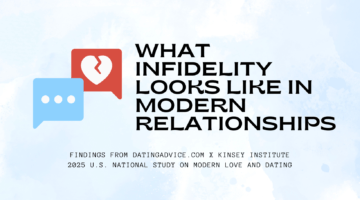People Who Use More Emojis Have More Sex
August 16, 2019 by Justin Lehmiller

What does your use of emojis say about your sex and dating life? According to a new study published in the journal PLoS ONE, a lot, actually. In fact, frequent use of emojis with potential dates is linked to not only having sex more often, but also to a more active and successful dating life.
These conclusions come from two separate studies conducted by researchers at The Kinsey Institute and Lake Forest College. In the first study, they analyzed data from a large survey of 5,327 single Americans that was designed to reflect the demographic diversity of the United States. Participants ranged in age from 18-94, and most identified as heterosexual (87%) and as White (62%).
Participants completed a survey inquiring about whether they use emojis and, if so, why. They were also asked several questions about their current sex and dating life.
So how often do people use emojis with potential dates? It turned out that 38% said they never do, 29% hardly ever do, 28% regularly use them, 3% use at least one in every text, and 2.5% use more than one in every text.
People’s reasons for using emojis varied and included wanting to give their messages more personality, making it easier to express feelings, making communication faster than typing, and because it’s trendy (in other words, because everyone else is doing it).
Frequent use of emojis predicted going on more first dates over the past year, as well as more frequent sexual activity.
The second study was a smaller online survey of 275 adults that attempted to replicate and extend these findings. Participants ranged in age from 18-71, and most identified as heterosexual (84%) and White (73%).
Emoji use was more common in this sample; in fact, just 3% said they never use emojis with potential dates. Also, in contrast to the first study, emoji use was not linked to going on more first dates; however, it was linked to having more second dates.
Like the first study, frequent emoji use was linked to having more frequent sex. It was also linked to having more sex partners in the last year.
Also, with respect to the most recent date they went on, frequent emoji users were more likely to have kissed and had sex with that partner. They were also more likely to have gone on a second date and to have entered a relationship with that person.
It’s important to note that there are several limitations of this research, including the fact that the authors didn’t assess which types of emojis people sent. It could be that different emojis (e.g., kissy face, devil face, smiley face, etc.) are linked to different outcomes. Likewise, they only looked at sending emojis, not receiving them. It would therefore also be worth examining how emojis are perceived by others and whether some people find them to be more appealing than others.
With all of that said, what do all of these findings tell us? In the words of the research authors, they suggest that “people who use emojis more often may be better at forming connections with others.” They believe that emoji users are more emotive in general—in other words, it may not necessarily be the emojis themselves that are driving these effects; rather, perhaps emoji use signifies that one is more emotionally expressive, engages in more self-disclosure, and just has an easier time building intimacy. All of these factors are likely to lay the basis for a more active dating and sex life.
This suggests that people who are resistant to sending emojis for whatever reason just might be missing out.
Want to learn more about Sex and Psychology? Click here for more from the blog or here to listen to the podcast. Follow Sex and Psychology on Facebook, Twitter (@JustinLehmiller), or Reddit to receive updates. You can also follow Dr. Lehmiller on YouTube and Instagram.
To learn more about this research, see: Gesselman AN, Ta VP, Garcia JR (2019) Worth a thousand interpersonal words: Emoji as affective signals for relationship-oriented digital communication. PLoS ONE 14(8): e0221297.
Image Credit: 123RF/Денис Горелкин
You Might Also Like:

Dr. Justin Lehmiller
Founder & Owner of Sex and PsychologyDr. Justin Lehmiller is a social psychologist and Research Fellow at The Kinsey Institute. He runs the Sex and Psychology blog and podcast and is author of the popular book Tell Me What You Want. Dr. Lehmiller is an award-winning educator, and a prolific researcher who has published more than 50 academic works.
Read full bio >

